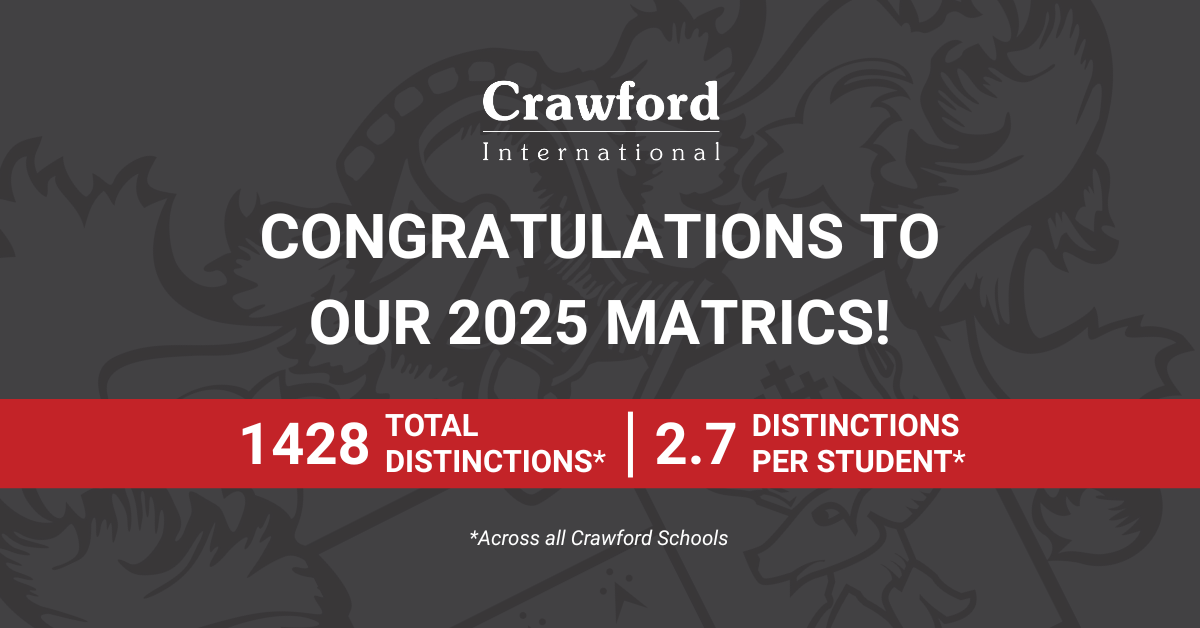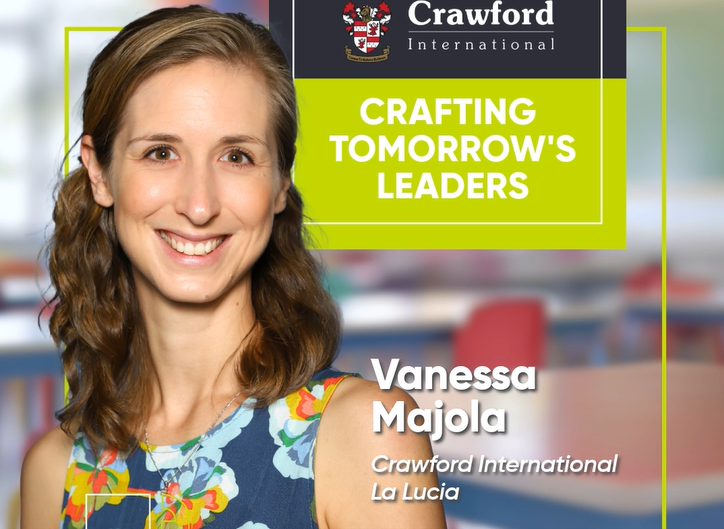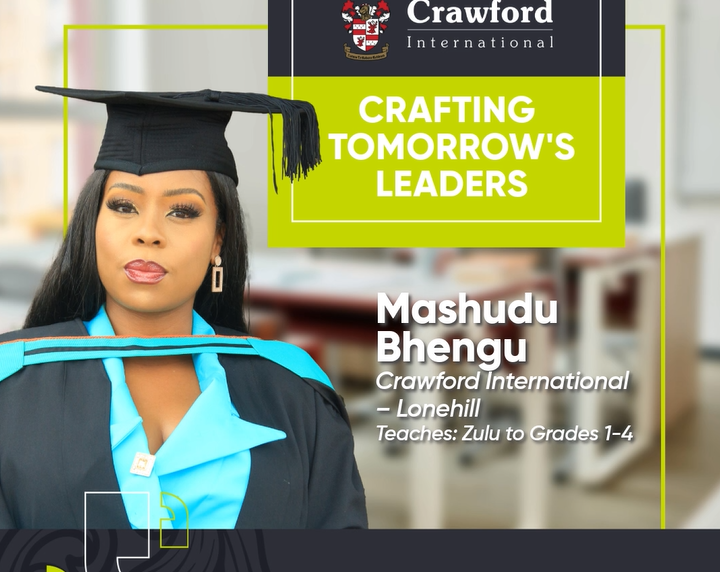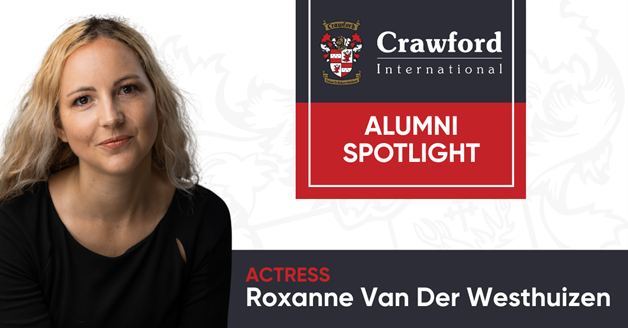The Role of Digital Literacy in Education
February 14, 2025
The rapid advancement of artificial intelligence (AI) is reshaping industries, redefining communication, and influencing how people learn. AI-powered technologies such as machine learning, natural language processing, and automation are increasingly embedded in everyday life, from digital assistants to advanced data analytics in education (OECD, 2023). As the world embraces this digital shift, the ability to navigate technology effectively has become essential.
Digital literacy is no longer an additional skill, it is a fundamental requirement for success in modern education and beyond. According to the World Economic Forum (2022), 65% of children entering primary school today will eventually work in jobs that do not yet exist, highlighting the necessity of equipping students with adaptable digital skills.
At Crawford International, Digital Literacy is introduced at the Pre-Primary level, where students engage with technology in structured ways. By the Preparatory phase, this foundation is further enhanced through educational technology (EdTech), providing students with the tools to develop critical thinking, creativity, and responsible digital habits from Grade 4.
What Is Digital Literacy?
Digital literacy refers to an individual’s ability to access, evaluate, create, and communicate information using digital technology. It involves more than just the ability to operate a device, it requires critical thinking, ethical engagement, and adaptability. UNESCO (2023) defines digital literacy as “the ability to access, manage, understand, integrate, communicate, evaluate, and create information safely and appropriately through digital technologies.”
In the 21st century, digital literacy extends beyond basic technical skills. It includes competencies in cybersecurity, online collaboration, media literacy, and digital ethics, all of which are essential for students to navigate an increasingly digital society.
The Core Components of Digital Literacy
To ensure students are equipped for the digital age, digital literacy can be broken down into several key components:
Technical Proficiency
Students must develop the ability to use digital devices, software, and applications confidently. This includes everything from word processing to using cloud-based learning platforms and online research tools (European Commission, 2023). At Crawford, students interact with digital platforms such as Toddle, where teachers and parents engage in real-time communication, reinforcing a collaborative learning environment.
Information and Media Literacy
With the rise of misinformation and fake news, students need to critically assess digital content and distinguish credible sources from unreliable ones. Research from the University of Pretoria (2022) found that 73% of South African students encounter misleading information online. Teaching students how to verify sources, fact-check data, and interpret digital content is crucial.
Cybersecurity Awareness
As digital threats continue to rise, students must understand online safety, data privacy, and responsible digital behaviour. A report by Kaspersky (2023) indicates that 45% of South African parents are concerned about their children’s online safety. Schools play a key role in educating students on creating strong passwords, recognising cyber threats, and practising responsible digital habits.
Digital Communication and Collaboration
The ability to communicate effectively through digital platforms is essential in both academic and professional settings. This includes email etiquette, virtual teamwork, and online discussions. Platforms like Microsoft Teams, Google Classroom, and Toddle help students develop these skills through real-time communication with teachers and peers.
Creativity and Innovation
Beyond consuming digital content, students should be encouraged to create and innovate using digital tools. Whether through coding, video editing, graphic design, or app development, digital literacy fosters problem-solving and creative thinking, which are vital for future careers (World Economic Forum, 2022).
How Digital Literacy Develops Critical Thinking and Collaboration
Digital literacy does not only equip students with technical abilities, it enhances critical thinking, collaboration, and adaptability. By engaging with digital tools, students learn to analyse problems, evaluate solutions, and communicate effectively with others. Research from the South African Institute for Distance Education (2023) shows that students who engage with digital learning platforms demonstrate higher levels of problem-solving and independent thinking compared to those who rely solely on traditional learning methods.
Collaboration is another crucial aspect of digital literacy. Online platforms enable students to work together on projects, exchange ideas, and build global connections. For example, at Crawford International, students in the Preparatory phase engage in collaborative digital projects, developing skills in teamwork and digital communication that will benefit them in the long term.
Digital Literacy and Career Readiness
As industries become more technology-driven, digital competence is now a key requirement for career success. The International Labour Organisation (2023) estimates that by 2030, over 80% of jobs will require some level of digital proficiency. This makes digital literacy an essential skill for students preparing to enter the workforce.
Beyond technical skills, adaptability and lifelong learning are crucial. Digital advancements continue to evolve, and students must be prepared to update their skills and stay informed about emerging technologies. Schools that integrate digital literacy into their curriculum equip students with the mindset needed for continuous learning and professional growth.
Addressing the Digital Divide and Online Safety Concerns
Despite the importance of digital literacy, access to technology remains uneven. In South Africa, research from Statistics South Africa (2023) indicates that only 37% of households have access to a computer at home, creating a significant digital divide. To bridge this gap, schools must implement strategies that ensure equal access to digital resources for all students.
Additionally, screen time management and online safety are growing concerns for teachers and parents. The South African Paediatric Association (2023) suggests that excessive screen time can impact cognitive development and sleep patterns in young children. Schools must educate students on responsible technology use, balancing screen time with offline activities, and ensuring online interactions remain safe and appropriate.
Digital literacy is no longer a supplementary skill, it is a fundamental competency that prepares students for the future. As AI and technology continue to redefine education and the workplace, students must be equipped with the skills to navigate, evaluate, and engage with digital tools responsibly.
At Crawford International, digital literacy is embedded into early learning through Pre-Primary and Preparatory Phase programmes that integrate EdTech to develop critical thinking, communication, and problem-solving skills. With digital literacy becoming a defining factor in academic success and career readiness, schools play a pivotal role in preparing students for a digitally-driven world.












